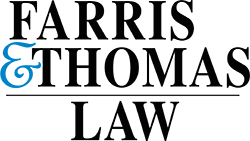Determining faults is part of any car crash investigation. Police officers and insurance companies will have to go over the statements made by the people involved and any other evidence, like traffic camera footage, to determine who is at fault.
Fault influences liability and therefore whose insurance policy pays. When one driver doesn’t have insurance or when their coverage isn’t enough, a collision could lead to a civil lawsuit. The plaintiff dealing with lost wages, overwhelming medical bills or a total vehicle may sometimes ask the courts for help recouping their losses.
If you have big expenses and need help paying them, will your small mistake in traffic affect your court case?
North Carolina has strict rules about fault
Contributory negligence is the legal term for how someone technically not to blame for a crash could be partially responsible for it. The individual facing a lawsuit could claim contributory negligence as a way to defend against the pending lawsuit.
If they can show that the driver who brought the claim has even 1% of the responsibility for the crash, the courts may decline to award the plaintiff any compensation for the collision. North Carolina is one of the only states in the country with a so-called pure comparative negligence rule.
In many other states, a reduced award is possible despite a minor mistake that contributed to a collision. In North Carolina, not using your blinker could be enough of an excuse for another driver to avoid financial responsibility for driving while texting or after having too much to drink.
Small mistakes don’t affect your insurance rights
Knowing the rules that apply to personal injury situations can help you get the most compensation possible. Although the other party may try to claim that you contributed to the crash, you may be able to challenge their assertion and win in court. The burden of proof will be on them, so witness testimony, crash reconstructions and forensic evidence could all help you show that you were not to blame for the collision that occurred.
If you do not believe your position makes a civil lawsuit a reasonable option, then you may need to be more assertive about how you handle the insurance claim to ensure that you get the maximum amount possible given the circumstances. Reviewing the evidence from the crash and gathering proof of how much it has cost you can help you decide the best way to seek compensation after a motor vehicle collision in North Carolina.

